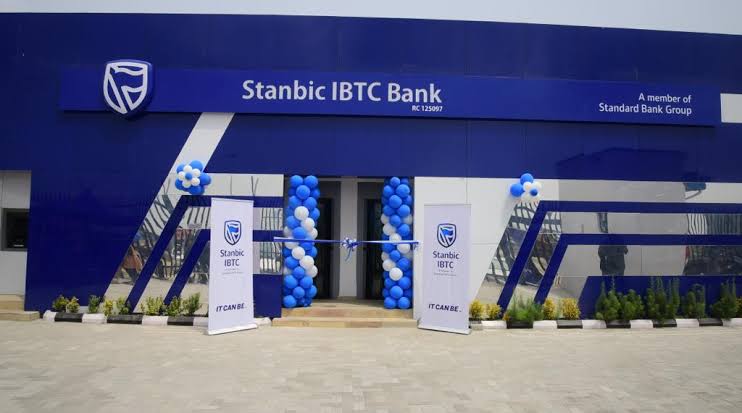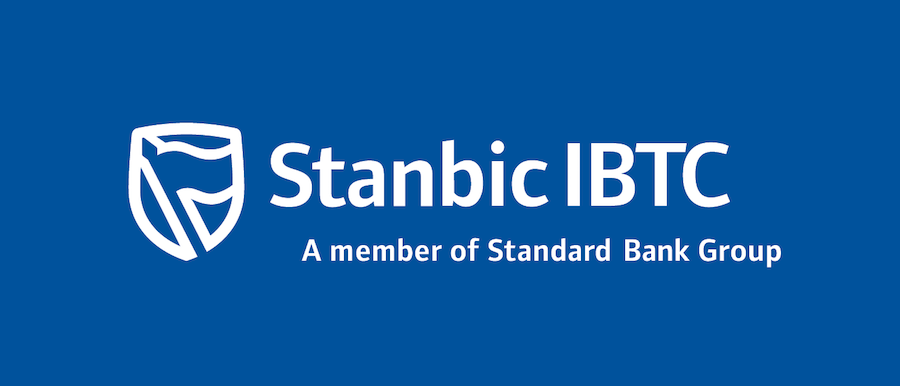Business
Stanbic IBTC posts strong Q3 earnings

By OKEY ONYENWEAKU
Being the highest valued stock at N42.35 per share on the price chart of the Nigerian Stock Exchange (NSE) is the least of what attracts investors to Stanbic IBTC.
Its market capitalization which stood at N470.3 billion as at Friday November 26, 2020, is hardly even close to that of the big names like Gt Bank, Zenith Bank, among others.
On the basis of total assets, Stanbic IBTC is also missing in the crowd of the top eight banks in Nigeria.
But nobody doubts that the quality of its services are near superlative and one of the best in the banking industry.
This fact was attested to by the Managing Director of one the best performing banks in Nigeria in an event recently.
Most of its competitors secretly admire the banks compact demeanor and envy its character and achievements.
Forced to break into retail banking during the compulsory banking consolidation exercise of 2004-2006, the bank has remained creative, tactful and focused.
Many still believe that its investment banking business is still the best in the industry.
From when it was established in 1989 as a first class investment bank, IBTC had always been deliberate with its operations to achieve both customer satisfaction and greater shareholder value for its owners.
As always, that focus and target have not changed. Looking at the lenders third quarter results for September 30, 2020 shows that the Groups profit grew 11.22 per cent from N69.108 billion in 2019 to N76.865 billion in 2020.
While profit for the period rose 19 per cent to N66.163 billion as against the N55.552 billion in 2019, earnings per share grew 13 per cent from 513 kobo in 2019 to 580 kobo in 2020.
The holding company moderated its costs marginally as operating expenses dropped from N71.593 billion in 2019 to N70.847 billion in 2020 while net fees and commission revenue also dropped from N53.373 billion in 2019 to N52.955billion in 2020.
At the close of business in September 2020, the banks Net Assets grew by 21% from N366bn to N302bn.
This is not a mean performance by any standards, especially at a time when the head and tail winds are strongest and devastating for businesses not only in Nigeria but also all over the world.
The twin barreled pandemic; that is that of Coronavirus and low price of crude which have disrupted businesses, supply chains and even caused many deaths all over the world seem to have placed a strong knee on the neck of many firms and ‘they can’t breathe’
The latest number of deaths according to Worldometer stood at 1.4million coronavirus deaths while infections were 61million as at Thursday November 25, 2020. The lender (Company) has remained formidable in the midst of all odds.
In fact, the previous years’ its strong performances have also provided a sturdy base for the vigour and strength which the lender has displayed.
Also looking at its 2019 performance, Stanbic IBTC Holdings PLC, a member of Standard Bank Group,reported gross earnings of N233.8 billion for the 12-month period, marking an increase a 5.1% increase when compared to N222.3 billion in FY 2018. Interest income also increased by 1.7 % to N120.4 billion, up from N118.3 billion last year.
Its Profit Before tax stood at N90.9 billion during the period under review. In FY 2018, Stanbic IBTC Holdings Plc reported a PBT of N88.1 billion, indicating that there was a 2.3% increase.
The company’s profit after tax for the Year ended 2019 was N75 billion, representing a 0.8% increase when compared to N74.4 billion during the comparable period in 2019.
In the competing year, especially in the last five years from 2015 to 2019, the company has proved to be impressive. For instance, its profit before tax rose by 99 per cent from N23.651billion in 2015 to N91.000billion in 2019. Similarly, earnings per share has also grown by 346 per cent from N1.55 in 2015 to N6.92 in 2019 even though it retreated from N7.04 it stood in 2018.
Despite that its management lead by Mr. Peterside Atedo frowned at the banking consolidation(Recapitalisation to N25bn) that ended in 2006 which forced it into a universal banking system, the company has long taken advantage of the new trends to grow its balance sheet and remain highly competitive in the banking industry. The company also realized the advantages in diversifying when it quickly became a holding company in 2012 when the opportunity offered itself instead of streamlining to only core banking operations as was dictated by the regulatory authorities in 2010.
‘’Risk management is at the core of the operating and management structures of the group. The group seeks to limit adverse variations in earnings and equity by managing the balance sheet and capital within specified levels of risk appetite. Managing and controlling risks, and in particular avoiding undue concentrations of exposure and limiting potential losses from stress events are essential elements of the group’s risk management and control framework, which ultimately leads to the protection of the group’s reputation and brand’’, the company had said.
According to the bank,thegroupmanagesitscapitalbasetoachieveaprudentbalancebetweenmaintainingcapitalratiostosupportbusinessgrowth and depositor confidence, and providing competitive returns to shareholders. The capital management process ensures that each group entity maintains sufficient capital levels for legal and regulatory compliance purposes. The group ensures that its actions do not compromise sound governance and appropriate business practices and it eliminates any negative effect on payment capacity, liquidity and profitability.’’
Its modest success has shown that quality actually pays in the long-run. This may be the reason why the bank has run a modest, focused, tight and qualitative organization. In fact, the bank believes in doing its own thing rather than join the fray of aggressive competition that pervades the Nigerian banking industry.
But this is happening when majority of listed deposit money banks (DMBs) financial performance scorecard in the third quarter of the financial year 2020 reflects the sluggish economic disposition of the nation as average banks’ profits weakened as against the corresponding year’s numbers.
Analysts believe it has become hard for firms to fly in such weak economies as Nigeria where the economy which has already slid in to recession by 3.6 per cent ; where inflation is hitting the roof top at about 13 per cent; where the Naira has lost value and vigour; where the budget deficit stood at -4.69% of GDP; where insecurity has halted business activities in some parts of Northern Nigeria; where unemployment remains very high; where government is unstable; where economic policies are done to favour a section of the country.
Recently, the government has hiked the prices of fuel and electricity for the masses of the country with 82 per cent of its population in the poverty bracket.
‘’Who would expect companies to perform magic in a country where its citizens appear to have lost hope’’, a senior civil servant who would not want to be mentioned in print.
Despite all, Stanbic IBTC sailed above water when others including like GT Bank, UBA, Wema Bank and Sterling Bank are struggling to escapeprofit decline in their nine months report cards.
Unfortunately, it is not all roses for the Holding Company. Between 2013 and 2014, the company had faced a huge image problem for allegedly indulging in creative accounting. Though it has since left that behind, the challenge dragged down its market capitalization by over N22billion within 24 hours amidst the ragging battle it had with the regulators at that time.
Fortunately for the bank, analysts believe that the company possesses strong virtues that still endears it to its customers and investors.
Managing Director of Crane Securities, Mr. Mike Ezeh told Business Hallmark described the company as a high flyer which has always displayed strength with strong and balanced balance sheet.
Its foreign partnership, according to Ezeh is an added advantage to the institution because it helps it to attract mostly institutional investors.
Mr. Ezeh however, explained that though its being the highest valued stock is a credit to the company, he noted that it puts its shares beyond the reach of ordinary investors or shareholders.
‘’The company’s strong balance sheet is not commensurate with the dividend it pays which is usually small.’’ , he complained.
This not withstanding analysts believe that Stanbic Ibtc is a strong institution any day even without huge retail base.









